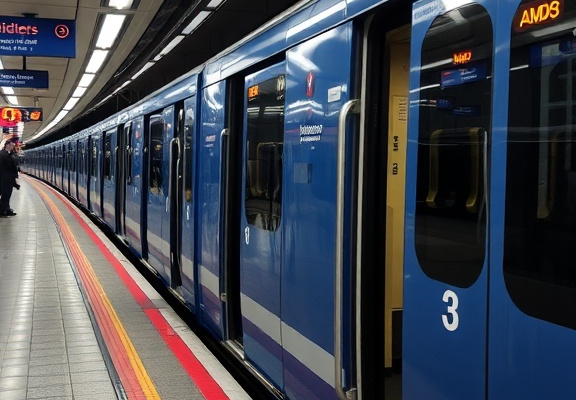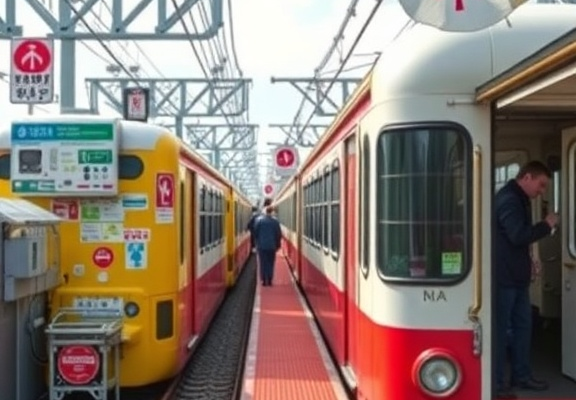The Impact of Trump’s Policies on Global Tourism Trends and the $250 Visa Fee
The landscape of global tourism has been significantly influenced by political climates and policies. Notably, Trump’s administration introduced several changes that reshaped tourist perceptions and experiences in the United States. Many travelers found themselves navigating an uncertain environment that impacted their travel plans.
Thank you for reading this post, don't forget to subscribe!One of the most noteworthy changes was the introduction of the $250 visa fee. This hefty charge was added to the costs of traveling to the United States, making it less appealing for potential tourists from various regions. The fee seemed to represent a shift in how the U.S. viewed foreign visitors, contrasting sharply with previous policies that encouraged tourism as a robust sector for the economy.
In the wake of Trump’s policies, many travelers reported feeling unwelcome. This sentiment stemmed from various travel bans, stricter immigration laws, and an overall rhetoric that appeared hostile towards international visitors. The perception of the U.S. as a land of opportunity began to wane. It’s crucial to realize how these feelings can translate into decisions about travel. Many people opted to visit other countries where they felt more welcomed. Key points regarding this trend include:
- Increased Travel Restrictions: More stringent visa processes and new restrictions made it complicated for travelers, especially from predominantly Muslim countries.
- Economic Factors: The added $250 visa fee became a considerable factor, especially for families or budget-conscious travelers.
- Negative media portrayal: International news coverage often highlighted the divisive aspects of Trump’s policies, driving away potential visitors.
- Perceived Safety Issues: Increased violence and political unrest, often associated with immigration policies, created concerns about personal safety among tourists.
- Competition from Other Countries: Countries that actively sought to attract tourists highlighted their friendly policies and less expensive visa options, enticing travelers.
The costs associated with travel to the U.S. began to outweigh the perceived benefits. While many countries reduced fees or even offered visa-free travel, the $250 charge had the opposite effect. For families looking to explore the rich American landscapes and cultural offerings, that price could mean choosing a destination with lower travel costs. Moreover, unconventional destinations with fewer visitors began to flourish during this period, as they provided attractive alternatives.
Trump’s policies also made headlines due to aggressive rhetoric about immigration. Such statements often ran counter to the values of diversity, openness, and inclusion that many international tourists expect. Vacationers seeking a welcoming environment found themselves reconsidering trips to the U.S. The rise in alternative travel destinations and experiences dramatically illustrated how a shift in political policy could lead to profound changes in tourism trends.
It’s essential to consider the long-term impacts of these shifts. Lost tourism revenue has effects that ripple through various sectors of the economy. Industries like hospitality, entertainment, and retail are just a few that thrive on inbound tourism. When potential travelers decide against visiting the U.S., companies in these sectors take the hit. Jobs are affected, and growth in these areas stagnates.
Furthermore, the $250 visa fee is only the tip of the iceberg. It reflects broader themes of inclusivity versus exclusivity in travel. The psychological barrier created by policies and perceived unwelcomeness has led many to seek travel experiences that feel more open and inviting. Countries heavily investing in statistics and marketing strategies to attract tourists have noticed an opportunity here. The shift also signifies a changing global mentality toward travelers, emphasizing cultural exchange over barriers.
This impact extends beyond immediate economic consequences. It has led to important conversations about what it means to be a global citizen in today’s world. With travel being a gateway to understanding cultures and building friendships, it’s vital for countries to promote policies that encourage openness rather than isolation. The reliance on tourism can serve as a unifying force, fostering deeper connections between diverse populations, and showing the world the best of what each nation has to offer.
As these trends continue to develop, future administrations will need to consider the weight of their policies on global tourism. It remains essential for countries to recognize that being a welcoming destination is not just good diplomacy; it’s also a smart economic move. Shifts in tourism trends often reflect much deeper issues and sentiments among the global community. The legacy of Trump’s policies and the additional visa fees may indeed remain a pivotal moment in understanding how political landscapes shape travel experiences.
Analyzing the Economic and Cultural Consequences of Reduced Tourist Influx in the U.S
In recent years, the decline in tourist numbers has become a pressing issue for the United States economy and culture. Various factors have contributed to this change, leading to significant economic and cultural consequences. Understanding these impacts can help shape future policies that encourage tourism and better engage international visitors.
Economic Consequences of Reduced Tourist Influx
The U.S. tourism industry has traditionally been a major contributor to the economy. When tourist numbers decline, several negative effects emerge:
- Lost Revenue: In 2019, international visitors contributed approximately $251 billion to the U.S. economy. A significant drop in tourists means a decrease in revenue for hotels, restaurants, and various entertainment venues. This loss of income disrupts local economies, affecting both businesses and their employees.
- Job Losses: The tourism sector is a substantial employer, providing millions of jobs. A decline in visitors results in layoffs, especially in industries reliant on tourism, such as hospitality and transportation. This creates ripple effects, as families struggle to adjust to sudden job losses.
- Tax Revenue Decline: Tourism generates significant tax revenue for local, state, and federal governments. Lower tourist numbers mean diminished tax contributions, leading to budget shortfalls that can impact public services and infrastructure development.
Cultural Consequences of Reduced Tourist Influx
Beyond the economic impact, a decrease in tourists also affects the cultural landscape of the U.S.
- Loss of Cultural Exchange: Tourism fosters cultural exchange, allowing visitors to learn about American culture while Americans can share their traditions and lifestyles. Reduced tourist influx diminishes these interactions, which can lead to a more insular society.
- Decline in Cultural Events: Many cities host festivals and cultural events designed to attract tourists. A reduction in tourism can lead to fewer resources for organizing these events, diminishing the vibrancy and diversity of cultural offerings available to both residents and tourists.
- Impact on Global Image: The U.S. image as a welcoming destination can suffer as policy changes and reduced tourism alter perceptions abroad. This shift may discourage future visitors and harm the country’s reputation in the international community.
Policies Contributing to Tourism Decline
Several policies have been identified as major contributors to the recent tourism slide. From visa costs to travel bans, these measures have created barriers for potential visitors.
- Increased Visa Fees: One of the most significant factors is the introduction of high visa fees, reaching as much as $250. This added financial burden discourages travelers from visiting the U.S. when competing destinations offer easier and cheaper entry.
- Travel Restrictions: Stringent travel restrictions imposed during various global events, including the pandemic, further hinder tourism. Potential visitors may feel uncertain about their ability to enter the U.S., leading to a more cautious approach to travel decisions.
- Changing Immigration Policies: Marked shifts in immigration policies create an environment of uncertainty. Those from certain countries may view the U.S. as unwelcoming, opting instead for more inviting destinations.
Future Implications and Considerations
Looking forward, it’s critical for policymakers to prioritize tourism recovery. By revisiting regulations that negatively impact tourist access, the U.S. can work towards revitalizing this essential sector. Key considerations should include:
- Reassessing Visa Fees: Lowering visa fees would make the U.S. a more attractive destination. Simplifying the application process can also enhance access, encouraging international travelers to visit.
- Promoting Cultural Experiences: Highlighting the vast array of cultural experiences available in the U.S. can entice more visitors. By showcasing regional festivals, museums, and unique regional attractions, the U.S. can appeal to a broader audience.
- Fostering Global Relations: Building positive international relationships can encourage tourism. Collaborative efforts with other nations to create tourism-friendly policies can enhance mutual travel opportunities.
Addressing the economic and cultural impacts of reduced tourist influx in the U.S. is crucial for maintaining a thriving tourism industry. Recognizing the interconnectedness of policies and their effects can help create a more welcoming environment for visitors around the world. By striving for solutions that enhance tourism, the U.S. can regain its status as a premier travel destination.
Conclusion
The ramifications of Trump’s policies on tourism are clear and multifaceted. The introduction of a $250 visa fee has not only made visiting the U.S. more costly but also less appealing to many potential tourists, especially those from countries that traditionally send large numbers of visitors. This shift reflects a larger trend where barriers have replaced the previous welcoming atmosphere, consequently driving away tourists who contribute significantly to the economy.
Reduced tourist influx has far-reaching implications. Economically, cities that depend on tourism as a major income source are witnessing a decline in revenue, leading to job losses in sectors ranging from hospitality to retail. As travel restrictions and increased costs deter tourists, local businesses struggle to stay afloat. Culturally, the U.S. risks losing the vibrant, diverse interactions that come with international visitors, diminishing the richness that different cultures can provide.
In a world that thrives on connectivity and shared experiences, these policies could hinder the United States from being a pivotal destination for global travelers. The challenge ahead is not only in reversing the effects of these policies but in creating an environment that once again welcomes tourists with open arms. By addressing both the economic and cultural consequences of decreased tourism, the U.S. can work toward fostering a future where visitors feel invited and valued, ultimately enriching the nation’s economy and cultural landscape. The road ahead will require thoughtful consideration and a renewed focus on rebuilding relationships with the global community, one traveler at a time.






